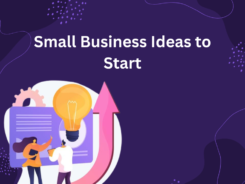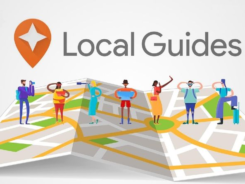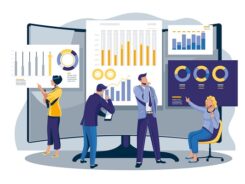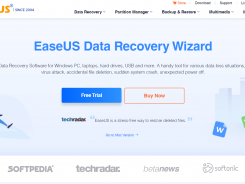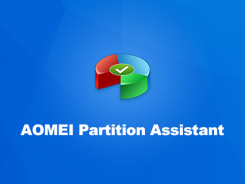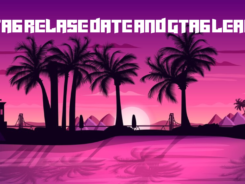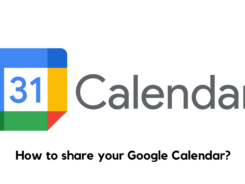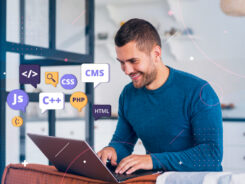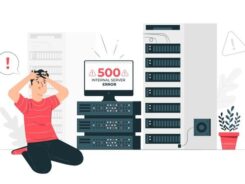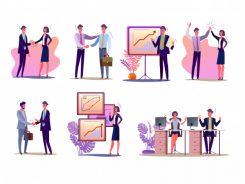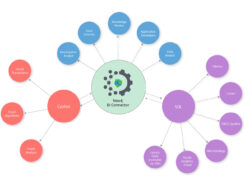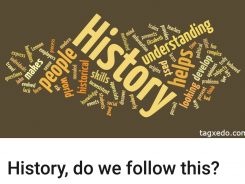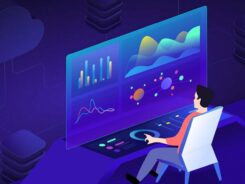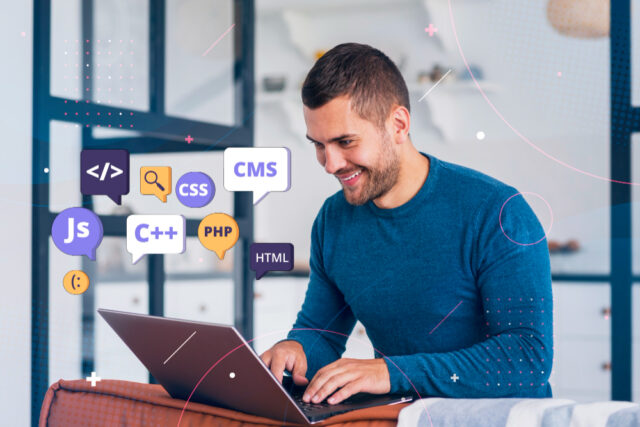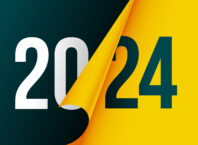In today’s digital age, the ability to code is a valuable skill that opens up a world of opportunities. Whether you’re looking to build a career in software development, enhance your problem-solving skills, or simply want to explore the fascinating world of coding, this comprehensive guide is designed to help beginner programmers take their first steps into the coding universe. As we delve into this guide, you’ll not only learn how to start coding but also gain a deeper understanding of why coding is important and how it can benefit your personal and professional life
What is Coding?
Coding, often referred to as programming, is the process of instructing computers to perform specific tasks by writing lines of code. Think of code as a set of instructions that a computer can understand. These instructions can range from simple calculations and data processing to the creation of complex software and applications. Coding is what powers the digital world, from websites and mobile apps to artificial intelligence and more.
Coding involves using programming languages, which are like the communication bridge between humans and computers. Just like learning a foreign language, coding allows you to communicate with computers to make them do what you want. This ability is not just about technology; it’s a gateway to problem-solving and innovation.
Coding Helps Build Professional Skills
The skills you acquire while learning to code extend far beyond the computer screen. Coding is not just about typing lines of text; it’s about developing a range of professional skills that are highly sought after in the job market. These skills include:
– Problem-Solving: Coding often involves breaking down complex problems into smaller, manageable parts. This analytical approach to problem-solving is applicable in various fields.
– Critical Thinking: Coding requires you to think critically and logically. You need to understand the problem, devise a plan, and implement a solution.
– Attention to Detail: Even the smallest error in code can lead to significant issues. Learning to code hones your attention to detail, an important skill in many professions.
– Creativity: Coding isn’t just about following predefined rules; it’s about finding creative solutions to problems and implementing innovative ideas.
– Persistence: Debugging and troubleshooting are common in coding. You’ll learn how to persistently address issues until you find a solution.
– Adaptability: Technology evolves rapidly. As a coder, you’ll continually adapt to new tools and languages, a valuable skill in any career.
Why Learn to Code
Coding Can Help You Earn More
The demand for skilled programmers is on the rise. As businesses and industries increasingly rely on technology, the ability to write code becomes an asset. Skilled coders are often well-compensated due to the specialized nature of their work. Learning to code opens doors to high-paying job opportunities in fields like web development, software engineering, data analysis, and more.
Coding Lets You Create Things
Coding empowers you to turn your ideas into reality. Whether you dream of building a website, a mobile app, a game, or a software solution for a real-world problem, coding provides you with the tools to create. This creative outlet is not limited to professionals; hobbyist coders can bring their imaginative projects to life, too.
Coding is Fun
Coding is not just about work; it’s also about fun and enjoyment. Solving problems and building things can be deeply satisfying. As you see your code come to life, you’ll experience a sense of accomplishment and excitement. It’s a journey of continuous learning and exploration that many find highly enjoyable.
5. How to Start Coding
Figure out why you want to learn to code
Before diving into coding, it’s crucial to understand your motivations. Ask yourself why you want to learn to code. Are you interested in a specific field like web development or data science? Do you want to enhance your problem-solving skills? Or are you simply curious about the world of coding? Having a clear sense of purpose will guide your learning journey.
Choose which coding language you want to learn first
Selecting the right programming language for your goals is essential. Some programming languages are beginner-friendly, while others are more suitable for specific applications. For example, if you’re interested in web development, starting with HTML and CSS is a great choice. If you want to dive into data analysis, Python is an excellent option. Consider your objectives and interests when making your choice.
Take online courses
Online courses provide structured learning paths and often come with instructional videos, quizzes, and hands-on projects. Websites like Coursera, edX, and Udacity offer courses on a wide range of programming topics. Many universities and organizations provide these courses, making high-quality education accessible to everyone.
Watch video tutorials
Video tutorials, available on platforms like YouTube and Udemy, offer a visual and interactive way to learn. You can watch experienced coders work on projects, explaining their thought process and techniques along the way. Video tutorials are great for visual learners and those who prefer a dynamic learning experience.
Read books and ebooks
Programming books provide in-depth explanations of coding concepts and techniques. They are excellent for in-depth learning and reference. Consider books like “JavaScript: The Good Parts” by Douglas Crockford for JavaScript or “Automate the Boring Stuff with Python” by Al Sweigart for Python. Ebooks are convenient for digital reading, and you can find many free coding ebooks online.
Use tools that make learning to code easier
As a beginner, it’s important to have the right tools to aid your learning:
Code Editor: A code editor is where you write and edit your code. Popular code editors like Visual Studio Code, Sublime Text, and Atom offer features like syntax highlighting, auto-completion, and integration with version control systems.
Console: A console, also known as a terminal, is a command-line interface that allows you to interact with your computer using text commands. It’s an essential tool for running code, managing files, and executing various operations.
Project Management: Project management tools help you organize your coding projects, set goals, and track your progress. Tools like Trello and Asana can help you manage your coding tasks effectively.
Troubleshooting: Troubleshooting is a crucial aspect of coding. When errors or issues arise in your code, you need to identify and fix them. Debugging tools and practices are essential for any coder.
Code Editor
A code editor is your virtual workspace. It’s where you write, edit, and organize your code. Modern code editors offer a range of features to make coding more efficient and error-free. These features include syntax highlighting (color-coding of code elements), auto-completion (suggesting code as you type), and the ability to work with version control systems like Git. Code editors are the primary tools for developers to create and maintain their projects.
Console
A console, often called a terminal or command prompt, is a text-based interface for interacting with your computer’s operating system. While it may seem intimidating at first, it’s an invaluable tool for programmers. You can use the console to run code, execute commands, manage files, and perform various operations on your computer. It’s especially useful for debugging code and running scripts.
Project Management
Managing coding projects effectively is crucial for staying organized and meeting your goals. Project management tools, like Trello, Asana, or GitHub Projects, help you plan tasks, track progress, and collaborate with others. These tools enable you to break down your project into manageable components, set deadlines, and ensure that you’re making steady progress toward your coding objectives.
Troubleshooting
Troubleshooting is a fundamental skill for coders. As you write code, you’re likely to encounter errors and issues that need to be addressed. Effective troubleshooting involves identifying the problem, understanding its root cause, and finding a solution. Debugging tools, testing techniques, and the ability to analyze and fix issues are essential skills in coding.
Check out how other people code
One of the best ways to learn coding is by studying how others do it. This involves examining existing code, projects, and open-source repositories on platforms like GitHub. You can gain insights into coding best practices, project structure, and problem-solving techniques. It’s like learning from experienced coders’ real-world examples.
Complete coding projects
Hands-on experience is a key aspect of learning to code. It’s through practical projects that you apply your knowledge, reinforce your learning, and develop the problem-solving skills necessary for coding. Start with small projects, such as building a personal website or a simple application. As you gain confidence, gradually take on more complex projects.
Benefits of Coding Projects
Coding projects offer several advantages:
– Application of Knowledge: Projects allow you to apply what you’ve learned in real-world scenarios, reinforcing your understanding of coding concepts.
– Portfolio Building: Completed projects serve as a portfolio to showcase your skills to potential employers, clients, or collaborators.
– Problem-Solving: Projects provide opportunities to tackle unique challenges and refine your problem-solving abilities.
– Creativity: Coding projects are outlets for your creativity, enabling you to bring your ideas to life.
– Continuous Learning: Projects encourage ongoing learning as you encounter new problems and seek solutions.
How to Stay Motivated While You’re Coding
Maintaining motivation throughout your coding journey is essential for long-term success. Here are strategies to help you stay enthusiastic:
Find a mentor and a community
Having a mentor or joining a coding community can provide invaluable support. Mentors offer guidance, answer questions, and share their expertise. Online communities and coding forums, like Stack Overflow or GitHub, are excellent places to connect with fellow coders, seek advice, and share your experiences.
Consider enrolling in a coding boot camp
Coding boot camps are intensive, short-term programs designed to immerse you in coding. They offer structured curricula, mentorship, and hands-on projects. While boot camps require a significant time commitment, they can accelerate your learning and provide a supportive learning environment.
Coding vs. Programming
While “coding” and “programming” are often used interchangeably, they have subtle differences:
– Coding: This term typically refers to the process of writing specific lines of code to accomplish tasks. It involves translating instructions into a language that computers understand.
– Programming: Programming encompasses a broader spectrum of activities. It includes not only coding but also designing, planning, and developing software solutions. It involves understanding the problem, creating an algorithm, coding the solution, testing, and maintaining the software.
Programming Languages
Programming languages are the tools you use to communicate with computers. The choice of your first programming language depends on your goals:
HTML (Hypertext Markup Language)
HTML is the language of the web. It’s essential for creating web pages and structuring content. HTML defines elements like headings, paragraphs, links, images, and more.
CSS (Cascading Style Sheets)
CSS complements HTML by controlling the visual presentation of web pages. It determines layout, colors, fonts, and styling elements like backgrounds and borders.
JavaScript
JavaScript is a versatile language for web development. It adds interactivity to web pages, enabling features like form validation, dynamic content, and responsive design.
Python
Python is known for its simplicity and readability. It’s an excellent choice for beginners. Python is widely used in fields like web development, data analysis, and artificial intelligence.
C/C++
C and C++ are versatile languages often used for system programming, game development, and creating software that runs close to hardware.
C# (C Sharp)
C# is a language developed by Microsoft. It’s commonly used for game development, Windows applications, and virtual reality applications.
Java
Java is popular for its “write once, run anywhere” feature. It’s used in Android app development and is widely employed in enterprise applications.
HyperText Preprocessor (PHP)
PHP is a server-side scripting language used for web development. It’s responsible for dynamic content generation, database access, and more.
Ruby
Ruby is known for its readable and elegant syntax. It’s often used in web development, with the Ruby on Rails framework for building web applications.
SQL (Structured Query Language)
SQL is essential for working with databases. It’s used to manage, query, and manipulate data in relational databases.
Swift
Swift is a language developed by Apple for iOS and macOS app development. It’s known for its speed and safety features.
Tips for Coding for Beginners
Be patient
Learning to code is a journey, and like any skill, it takes time and practice to become proficient. Be patient with yourself, and don’t be discouraged by challenges or mistakes. Every error is an opportunity to learn.
Get comfortable with the fundamentals
Before diving into complex topics, make sure you have a solid grasp of the fundamentals. Understanding the basics of programming constructs, data types, and control flow is essential.
Write clean code from the start
Clean code is code that is well-organized, easy to read, and maintainable. It’s a good practice to start writing clean code from the beginning. Clean code reduces the likelihood of errors, makes it easier for others to collaborate with you, and simplifies debugging.
Why is clean code important?
Clean code is essential because it:
– Enhances Readability: Clean code is easy to understand, which is critical when working on collaborative projects.
– Facilitates Maintenance: Maintaining clean code is more efficient and less error-prone.
– Reduces Bugs: Clean code is less likely to contain bugs, and when issues arise, they are easier to diagnose and fix.
– Enhances Collaboration: Clean code makes it easier for multiple developers to work on the same project.
Search is your friend
The coding community is vast, and you’re not alone on your coding journey. When you encounter challenges or have questions, don’t hesitate to use search engines and coding forums. Many experienced developers share their knowledge and solutions online. Websites like Stack Overflow and GitHub are excellent places to find answers to your coding-related questions.
Our Favorite Coding Resources
To help you on your coding journey, here are some recommended resources:
Coursera offers a vast array of online courses on coding, computer science, and related topics. These courses are often taught by instructors from renowned universities, providing high-quality education to a global audience.
MDN Web Docs (Mozilla Developer Network)
MDN Web Docs is a comprehensive resource for web technologies and coding languages. It offers extensive documentation, tutorials, and guides for HTML, CSS, JavaScript, and more.
Codecademy provides interactive coding lessons on various programming languages. It’s an excellent platform for beginners, offering a hands-on approach to learning to code.
The Odin Project is a free and open-source curriculum designed to help you become a full-stack web developer. It provides a structured path to mastering web development skills.
W3Schools offers tutorials and references for web development languages and technologies. It’s a great resource for learning HTML, CSS, JavaScript, and more.
Stack Overflow is a popular programming Q&A community. It’s a go-to place for finding answers to coding questions, troubleshooting issues, and sharing your knowledge with the coding community.
Coding is More than Just the Code
Coding isn’t limited to writing lines of code; it’s a multifaceted skill that involves creativity, problem-solving, and continuous learning. As you delve deeper into coding, you’ll discover that it’s a journey full of exciting challenges and opportunities. Embrace the process and enjoy the intellectual stimulation that coding provides.
Coding is Problem-Solving
At its core, coding is about solving problems. Whether you’re developing software to streamline a business process, creating a game, or building a mobile app, you’ll consistently encounter and overcome challenges. The ability to analyze problems, devise innovative solutions, and implement them is what makes coding both intellectually stimulating and incredibly rewarding.
In conclusion, the world of coding is a realm of infinite possibilities. It’s an adventure that empowers you to transform your ideas into reality, build a rewarding career, and continuously expand your skill set. As you take your first steps into the coding universe, remember that the journey is just as important as the destination. Stay curious, keep learning, and enjoy the incredible world of coding that awaits you.
Frequently Asked Questions:
1: How difficult is it to learn coding as a beginner?
Answer: Learning to code as a beginner can be challenging, but it’s entirely achievable. The difficulty largely depends on your dedication and the resources you use. Start with beginner-friendly languages and gradually progress to more complex ones. Remember, perseverance and practice are key to success.
2: What programming language should I start with as a beginner?
Answer: It’s a common question. For web development, begin with HTML and CSS. For a versatile and beginner-friendly language, try Python. Ultimately, the choice depends on your goals. Start with one language, master it, and then explore others as needed.
3: How can I stay motivated while learning to code?
Answer: Staying motivated is crucial. Join coding communities, find a mentor, and set achievable goals. Completing coding projects that interest you can be highly motivating. Remember that coding is a skill with numerous applications and exciting challenges, making it a rewarding journey.
4: What are the benefits of clean code, and why is it important?
Answer: Clean code is well-organized, easy to read, and maintainable. It enhances code readability, reduces bugs, and simplifies collaboration with other developers. Writing clean code from the start is crucial for efficient development and effective troubleshooting. It’s a best practice for all coders.



